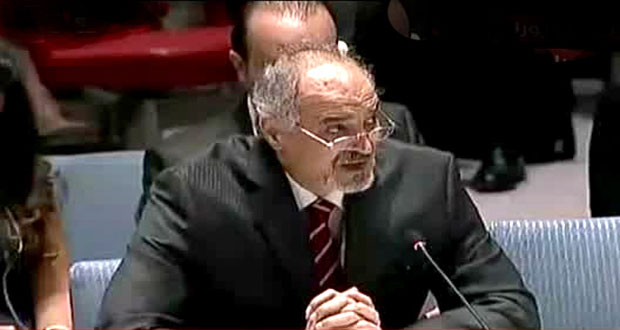A Syrian prisoner cleared for release months ago from the notorious US prison in Guantanamo Bay is withering away because of hunger strike

A Syrian prisoner cleared for release months ago from the notorious US prison in Guantanamo Bay is withering away because of hunger strike.
Forty-three-year-old Abu Wa’el Dhiab started his hunger strike 18 months ago to protest his indefinite confinement without charge.
In July, the Pentagon gave Congress a 30-day notice, saying it intended to transfer Dhiab and five other Guantanamo prisoners, three Syrians, a Tunisian and a Palestinian to Uruguay. The country has offered to accept them as a humanitarian gesture.
Last week, Uruguay presidential spokesman Diego Canepa, said aspects of the transfer haven’t been finalized yet and the transfer will not happen in the next two to three months.
US officials claim they cannot send Dhiab to his “war-torn” home country Syria, where he used to be a honey salesman, and have thus opted for a third country instead.
“We are very appreciative of Uruguay’s decision to resettle these individuals,” said Ian Moss, adviser to the US Special Envoy for Guantanamo Closure. “It truly is a significant humanitarian gesture.”
Meanwhile, Dhiab’s attorneys say he’s getting weaker every day.
“Everyone who has seen him recently is alarmed,” said Alka Pradhan, one of his attorneys who is a member of the human rights group Reprieve.
Dhiab, who has been fed through a nasal tube to prevent starvation, is challenging some of the tactics used by the military to deal with prisoners on hunger strike, according to documents filed in a federal court in Washington.
Dhiab is over six feet tall and now weighs only155 pounds, which is very thin for his height. One of his lawyers said that he was so weak that he had to lie on the floor when she met him this summer at the prison.
“He is so desperate to see his family and see his kids. He really doesn’t want to die,” Paradhan said. “But you can understand him not wanting to end his hunger strike until he’s actually on a plane.”
Out of the 149 prisoners held in Guantanamo, some 70 have been cleared for release but have not been released due to “difficulties” in “repatriating” them.




